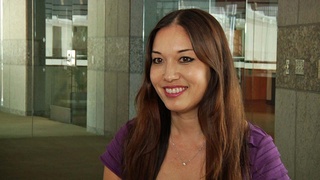Interviews
Different feelings from veterans about the draft resisters
Japanese are very stubborn, they’re stubborn. You know, when they had a talk here, the three of us were on a panel here at this hongwanji about, I forget how many years ago, it’s quite awhile back, we gave a talk. After our talk, one veteran did come up and says you know, he’s from Hawaii, he says, “I was a member of the four-forty-two.” He says, “I congratulate you guys. If I were in your shoes, I would have done the same thing.” Those Hawaiian boys are, seem so much more, uh… what do you call it? Understanding that way. It’s some of these Niseis over here, especially those that never saw action, are the most vocal against the resisters.
Date: May 9, 2006
Location: California, US
Interviewer: Lisa Itagaki
Contributed by: Watase Media Arts Center, Japanese American National Museum





